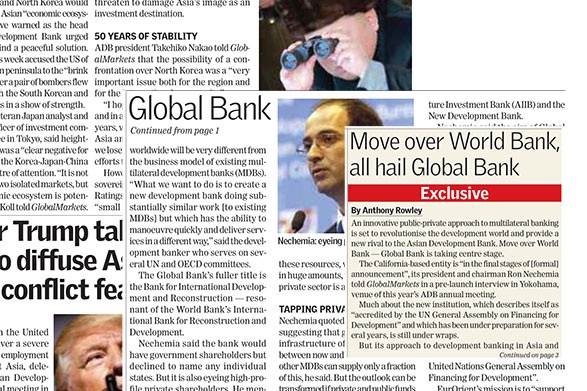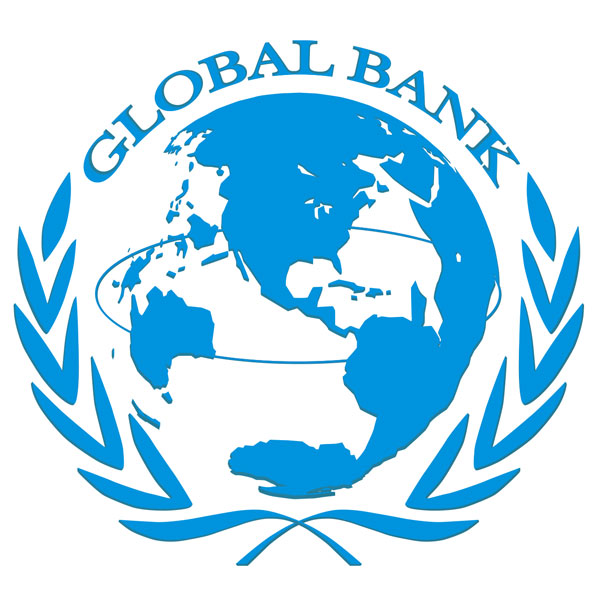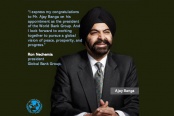
An innovative public-private approach to multilateral banking is set to revolutionise the development world and provide a new rival to the Asian Development Bank. Move over World
Bank — Global Bank is taking centre stage. The California-based entity is “in the final stages of [formal] announcement”, its president and chairman Ron Nechemia told GlobalMarkets in a pre-launch interview in Yokohama, venue of this year’s ADB annual meeting.
Much about the new institution, which describes itself as “accredited by the UN General Assembly on Financing for Development” and which has been under preparation for several years, is still under wraps. But its approach to development banking in Asia and worldwide will be very different from the business model of existing multilateral development banks (MDBs). “What we want to do is to create a new development bank doing substantially similar work [to existing MDBs] but which has the ability to manoeuvre quickly and deliver services in a different way,” said the development banker who serves on several UN and OECD committees. The Global Bank’s fuller title is the Bank for International Development and Reconstruction — resonant of the World Bank’s International Bank for Reconstruction and Development.
Nechemia said the bank would have government shareholders but declined to name any individual states. But it is also eyeing high-profile private shareholders. He mentioned Pimco, the world’s biggest debt market group, and also asset management giant BlackRock. “There is room for sovereign wealth fund participation [in the new bank] and for special cases from the private sector,” he said. “Not tapping these resources, which are available in huge amounts, is missing what the private sector is all about,” he said. TAPPING PRIVATE RESOURCES Nechemia quoted a McKinsey report suggesting that global spending on infrastructure of $49tr was needed between now and 2030. The ADB and other MDBs can supply only a fraction of this, he said. But the outlook can be transformed if private and public funds can be channelled through a new institution like Global Bank, he insisted.
The bank, which is already recruiting staff, marks a more radical departure than that represented by other entities such as the Chinese government-sponsored Asian Infrastructure Investment Bank (AIIB) and the New Development Bank. Nechemia said the aim of Global Bank was to channel funds into “economically and socially responsible development projects” such as infrastructure, thus “freeing up” existing multilateral and bilateral funds into other areas of development such as health. Global Bank is taking its first step into the public arena with the proposed launch of a semi-autonomous affiliate, the Infrastructure Project Preparation Fund (IPPF) which hopes to launch soon with a public offering of securities to finance its operations.
The “sponsor” of Global Bank is the EurOrient Financial Group (EurOrient), according to the bank’s website. Founded in 1988, EurOrient is a “private sector global development finance institution accredited by the United Nations General Assembly on Financing for Development”.
EurOrient’s mission is to “support economic and social development efforts of less-developed countries as they seek achieve internationally agreed development goals, including those contained in the Millennium Declaration.







